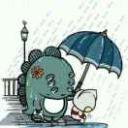高考试题中表示“推测”情态动词用法例谈
时间:2022-08-26 05:59:11

摘要: 本文从对高考中表示“推测”情态动词的试题分析入手,认为结合其用法,形成语感,把握规律,培养能力,才能掌握其基本准则,真正把握其内涵,在实践中活学活用。
关键词: 高考 情态动词“推测”
情态动词在高考试题中频频露面,特别是其表示“推测”的用法。为此,笔者结合近十年高考中与此有关的试题作了全面归纳,深层分析,系统总结,以便学生能全面理解,正确分析,灵活运用。
一、对现在情况的推测
情态动词表示推测,其中以must最有“可能性”,might的“可能性”,按might,may,could,can的顺序上升。如:
1.can表示推测,只有疑问式和否定式两种形式:can’t表示对现在情况的推测,用于否定句和疑问句,比may not的语气强,can’t表示“不可能”,may not表示“可能不”。如:
――Isn’t that Ann’s husband over there?
――No,it_________be him.I’m sure he doesn’t wear glasses.(2004年全国卷Ⅰ)
A.can’tB.must notC.won’tD.may not(Key A)
2.could表示对现在情况的推测,用于肯定句和疑问句;couldn’t不用于否定句表示对现在情况的推测,因为它表示“不可能”,但用于疑问句中表示询问的“可能性”。如:
――I’ve taken someone else’s green sweater by mistake.
――It_______Harry’s.He always wears green.(2005年广东卷)
A.has to be B.will be C.mustn’t be D.could be(Key D)
3.may表示对现在情况的推测,用于肯定句或否定句的陈述句。如:
You might just as well tell the manufacturer that male customers ______ not like the design of the furniture.(2004年上海春季卷)
A.mustB.shallC.mayD.need(Key C)
4.might表示对现在情况的推测,用于肯定句、否定的陈述句或疑问句中,might be可和could be互换。如:
――Are you coming to Jeffs party?
――I’m not sure.I ______ go to the concert instead.(NMET 2000)
A.mustB.wouldC.shouldD.might(key D)
3.could/may/might+be+V-ing表示“现在可能正在……”。如:
Theyaren’t in the classroom.They could/may/might be doing some experiments in the laboratory.
4.must表示对现在情况的推测,能用于肯定句,否定句不用mustn’t,要用can’t(mustn’t表示“禁止”、“不允许”)。如:
Michael ______ be a policeman,for he is much too short.(1994年上海卷)
A.needn’tB.can’tC.shouldD.may(Key B)
5.must+be+V-ing表示“现在一定在……”。如:
The light is on in the workshop,so the workers must must be still working now.
二、对过去情况的推测
must,may,might,can,could,etc.+have+P.P,可表示说话人对一个已经完成的动作或已经发生了的推测。
1.mustn +have+P.P推测的程度“可能性”最大,表示“想必已经”,“一定已经”,多用于肯定的陈述句,否定句用can’t+have+P.P。如:
(1)――Guess what!I have got A for my term paper.(2007年 上海卷)
――Great!You ______ read widely and put a lot of work into it.
A.mustB.shouldC.must haveD.should have(Key C)
(2)――Do you know where David is?I couldn’t find him anywhere.
――Well.He ______ have gone far――his coat’s still here.(2005年湖北卷)
A.shouldn’tB.mustn’tC.can’tD.would(Key C)
2.may+have+P.P表示单纯的推测,表示“可能已经”;might+have+P.P表示不肯定的推测,语气更委婉,可能性更小,表示“或许已经”。此外,还用于表示过去可能发生但未发生的动作,这两个结构均可用于肯定句或否定句。如:
――Where is my dictionary?I remember I put it here yesterday.
――You ______ it in the wrong place.(2007年江西卷)
A.must put B.should have put
C.might put D.might have put(Key D)
3.could +have+P.P表示主语过去具有做某事的能力,但没有做,表达“本来能够”之意。couldn’t+have+P.P用来表示过去情况的否定推测,其含义为“决不会”,“不可能”。如:
My MP4 player isn’t in my bag.Where ______ I have put it?(2007年福建卷)
A.canB.mustC.shouldD.would(Key A)
4.should/+ought to+have+P.P表示“本应该做,但实际却没做”,shouldn’t/ought to+have+P.P“本来不该做,但实际却做了”,均含有对主语进行责备之意。如:
(1)――How’s your tour around the North Lake?Is it beautiful?
――It ______ be,but it is now heavily polluted.(2007年全国卷I)
A.willB.wouldC.shouldD.must(Key C)
(2)――My cat’s really fat.
――You______ have given her so much food.(2007年浙江卷)
A.wouldn’t B.couldn’t C.shouldn’t D.mustn’t(Key C)
(3)I told your friend how to get to the hotel,but perhaps I ______ have driven her there.(2007年陕西卷)
A.could B.must C.night D.should(key D)
5.needn’t+have+P.P表示“本来不必做某事而实际上做了某事”。如:
――Catherine,I have cleaned the room for you.
――Thanks.You ______ it.I could manage it myself.(2005年福建卷)
A.needn’t do B.needn’t have done C.mustn’t do D.should n’t have done(Key B)
三、对将来情况的推测
could/may/might+V原形,表示对将来情况的推测,其含义为将来可能;should/ought to+V原形表示“将来会……”;will+V原形表示“将来一定、准会……”;must+V原形表示“将来一定……”。如:
1.It could/might rain this afternoon because it’s very dark with cool and wind now.
2.The dinner should be ready now,for it’s nearly 6 o’clock.
3.Work hard and your wonderful dream will come true.
4.I am sure she must be better in a day or two.
总之,要真正掌握其用法,除准确掌握其机构和基本含义之外,还要结合语境,整体感知,捕捉信息,化隐为显,才能达到正确理解、提升能力及准确运用的目的。
